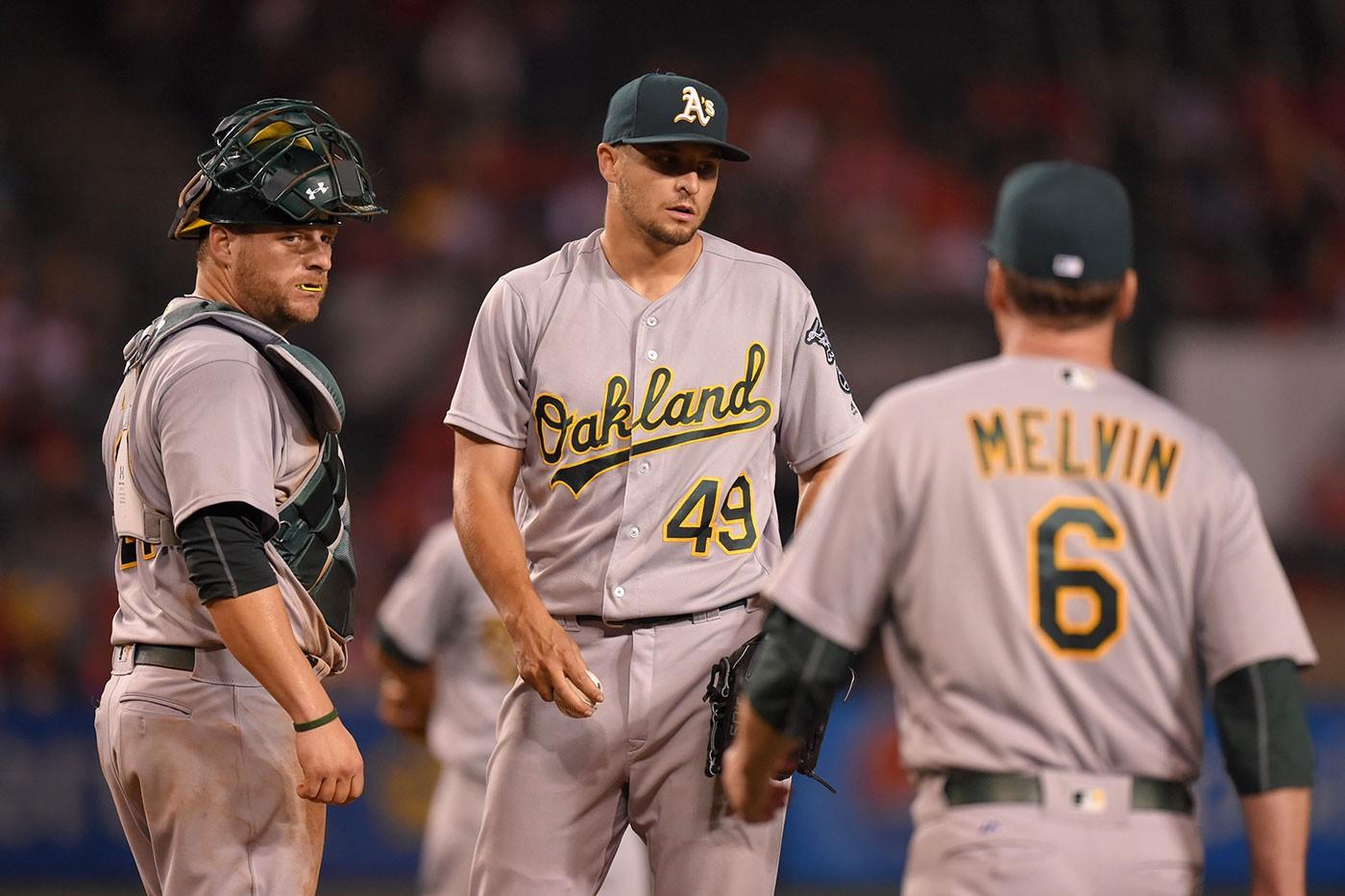The A’s have done it again. Once more, the team shuffled toward the trade deadline as a seller. Once more, the roster was subjected to a controlled explosion with a vague gesture at “tomorrow.” And once more, fan favorites — most notably outfielder Josh Reddick this time around — have been stripped of green and gold and sent to places with grander plans.
What exactly are Oakland’s plans? For a long time — since sometime after 1997, when Billy Beane was named the general manager, and certainly since 2003, when Michael Lewis published Moneyball — much of being an A’s fan was about watching Beane cook. The perennially cash-strapped Athletics would, the wisdom went, find a way to win under their savvy GM, who knew how to stretch his budget and players and capture the hearts of fans to do more with less. Then, in April 2005, real estate developer Lew Wolff and Gap heir John J. Fisher bought the A’s for $180 million; at the time of the sale, the Wolff-Fisher ownership group was the third richest in baseball.
More than 11 years later, a growing chorus of fans is now demanding that Wolff and Fisher sell the team. The A’s are profitable, but the owners have been reluctant to put that revenue back into the club. They have instead continued in their predecessors’ thrifty footsteps, keeping payroll low (27th in the majors) and, with a Beane-backed enthusiasm, serially ditching players just as soon as they border on superstar status (with resultant superstar price tags). This happened in November 2014, when they sent away third baseman Josh Donaldson, who would be named AL MVP and who led the Blue Jays to last season’s ALCS, for the underwhelming package headlined by the since-departed Brett Lawrie.
Wolff, now 80 years old, has become a target for the ire of fans, some of whom darkly refer to him as “Lewcifer.” He and Fisher have tried repeatedly to move the team: to Fremont, California, about 25 miles south of Oakland, or especially to San Jose, where Wolff owns property and the MLS Earthquakes, and where it’s clear he envisioned taking the A’s when he bought them. That move was stymied by the Giants’ territorial claims and officially died in October, when the Supreme Court declined to hear the case. The A’s play in the increasingly decrepit, sewage-plagued Oakland Coliseum, the last dual-purpose NFL-MLB venue in the country, and are sorely in need of a new park; Wolff and his partners, however, have resisted possibilities for construction in the team’s current hometown. Numerous prospective buyers have reportedly expressed interest in purchasing the A’s — including Warriors majority owner Joe Lacob, whose supposed baseball dreams have been the stuff of rumors for years — and yet Wolff continually insists that the franchise is not for sale.
But if the A’s aren’t winning (they’re 47–60 in 2016, one season after finishing 68–94), and if they can’t be moved where Wolff wants, and if the ownership group doesn’t want to invest — why wouldn’t the team be put on the market?
The more cynical parties in the East Bay suggest that it might have more than a little to do with money. Oakland is officially considered a small market by Major League Baseball. If you looked at attendance numbers and nothing else, you might believe it: Oakland — population 419,000 in a metro area of more than 7 million — hasn’t averaged more than 25,000 fans a game since 2005, and consistently ranks among the lowest teams in attendance in the majors. As a designated small-market team, the A’s are privy to a big chunk of change each year from the league, which under the current collective bargaining agreement that took effect in 2012, means about $34 million per year.
At the end of this year, though, the collective bargaining agreement will be renegotiated, and it’s thought that MLB might consider revoking Oakland’s small-market status. Wolff insists this payout is the only thing keeping the team afloat. It also might be the only thing that keeps him owning a team whose sole goal seems to be to keep running until the next roster implosion.


